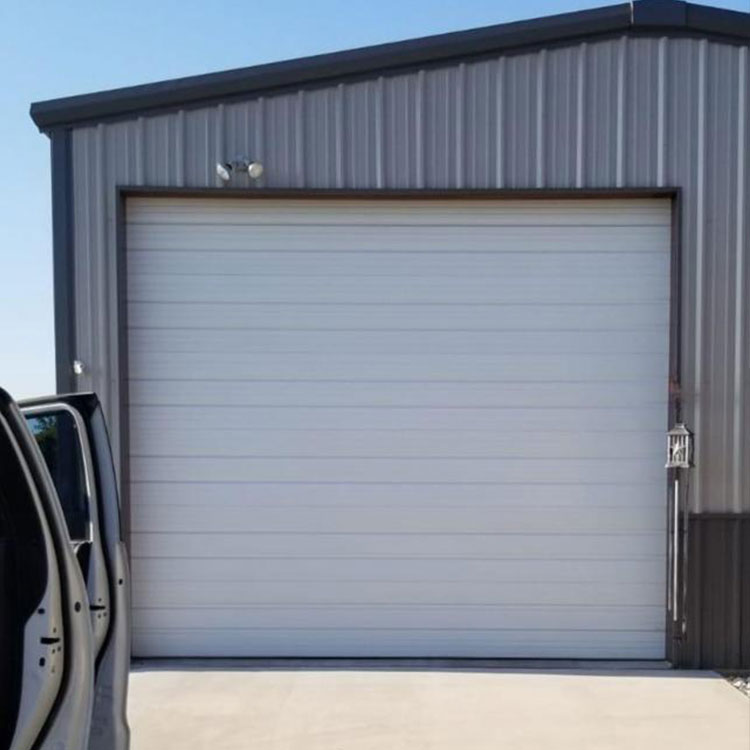A working garage door opener is essential to the daily routine of most homeowners in Cedar Hill, TX. Whether it’s protecting your car from harsh Texas weather or offering convenient access to your home, a malfunctioning opener can quickly become a frustrating obstacle. When these issues strike, knowing how to respond efficiently can save you stress, time, and money.
If you’re experiencing opener trouble and need fast, professional support, Metro Garage Door Repair is your trusted partner for garage door repair Cedar Hill TX.
Let’s walk through how to recognize problems, troubleshoot at home, and decide when to call in expert help.
Recognizing the First Signs of Garage Door Opener Trouble
Often, an opener malfunction starts subtly. By identifying these signs early, you can prevent full-blown breakdowns:
- Intermittent operation – You may notice the door works fine one moment and refuses to respond the next. This inconsistency often points to early electrical issues or failing internal components, like a worn circuit board or remote receiver.
- Unusual noises during operation – Grinding, squeaking, or scraping sounds can indicate problems with the opener’s motor, drive mechanism, or gears. These sounds should not be ignored—they’re often the first warning that a component is about to fail.
- Remote fails to trigger the door – If pressing the button on your remote results in nothing happening (or a delayed response), the issue could be dead batteries, disrupted signals, or a failing receiver in the opener itself.
- Slow or stuttering door movement – A garage door that starts and stops, or moves in a jerky fashion, could have misaligned tracks, strained springs, or a failing opener motor that’s struggling under the load.
- Sensors blinking or showing error lights – Most garage openers include safety sensors that stop the door from closing when an object is detected. If these sensors are blinking or not responding properly, they may be dirty, blocked, or misaligned.
Top Reasons Garage Door Openers Malfunction in Cedar Hill Homes
Cedar Hill’s unique weather and home construction styles can play a role in the failure of garage door systems. Here are some frequent causes of garage motor issues in the area:
- Worn gears or belts over time – Garage door openers, especially chain- or belt-driven ones, rely on physical components that wear down over years of daily use. These components can eventually snap, grind, or become too loose to function effectively.
- Faulty or frayed wiring – Texas heat and electrical surges from summer storms can cause deterioration in the wiring that connects your opener to the power source or control panel. Loose connections may cause the unit to behave unpredictably.
- Sensor misalignment or dirt – Dust, spider webs, and shifting due to vibrations or weather can knock sensors out of alignment. When the safety sensors are compromised, your door may refuse to close or stop halfway.
- Battery failure in remotes or backup systems – Dead remote batteries are a common and easy-to-fix problem, but many homeowners overlook this. In units with backup batteries, those too can run out and prevent operation during a power outage.
- Overheating or storm damage to circuits – Cedar Hill’s summer heat can stress sensitive electronics, and lightning storms can fry internal boards if surge protectors aren’t installed.
Quick Troubleshooting Steps to Try Before Calling a Technician
Before contacting a garage opener technician, try these safe and simple at-home fixes:
- Ensure power is connected – Verify that the opener is securely plugged in. Check your circuit breaker or fuse box to make sure nothing has tripped. Sometimes, the fix is as simple as flipping a switch.
- Replace your remote batteries – It may seem obvious, but a surprising number of calls come down to a dead remote. Swap in new batteries and test again. If you have more than one remote, test both to isolate the issue.
- Clean and realign the sensors – Wipe off any dirt, cobwebs, or condensation from your garage door sensors. Then check that they’re facing each other directly. A blinking LED on the sensor often signals a problem.
- Try the wall switch – If the remote doesn’t work, but the wall-mounted control does, the problem may lie in the transmitter. This can help you isolate the fault more accurately.
- Test manual operation – Pull the emergency release cord and manually lift the door. If it moves smoothly, the problem is more likely with the opener, not the tracks or springs.
Why You Shouldn’t Ignore Intermittent Opener Problems
Garage opener service isn’t something to delay when problems arise—even small ones. Here’s why:
- Minor issues can become major failures – A weak motor today could be a burnt-out circuit tomorrow. An unresponsive remote could signal a failing receiver that will soon stop working entirely.
- Safety risks increase – Doors that don’t close properly can leave your home vulnerable to intruders, or worse, fail to stop when an object or person is in the way.
- Repair costs rise the longer you wait – Early repairs are typically more affordable. Waiting until full failure often means opener replacement, not repair.
When DIY Repairs Aren’t Enough: Signs You Need a Pro
Some opener issues demand the tools and training of a professional. You should call a garage opener technician if:
- The opener’s motor keeps running after the door stops – This could mean an internal gear is stripped or the limit switch is malfunctioning.
- Your door slams shut or refuses to open completely – These symptoms often point to spring or cable issues, which are dangerous to repair without proper equipment.
- The opener doesn’t respond at all – After confirming power and testing remotes, complete silence typically indicates electrical failure or motherboard damage.
- There’s visible damage to wires or hardware – Frayed chains, loose wires, or cracked mounts need immediate professional attention.
How Much Does Garage Door Opener Repair Cost in Cedar Hill TX?
Cedar Hill repair costs are generally reasonable, especially compared to full replacements. Here’s a breakdown of what you might expect:
- Diagnostic fee – $40 to $70, depending on the provider and whether it includes travel.
- Sensor repair or replacement – $80 to $150, depending on brand and compatibility.
- Motor repair – $150 to $400 if the issue is isolated to the motor and parts are available.
- Opener replacement – $300 to $600+, especially for smart models or heavier-duty openers.
- Emergency repair fees – May apply for same-day or weekend service calls.
Always ask for a detailed estimate before agreeing to any work.
Choosing the Right Garage Opener Repair Service in Cedar Hill
To find a top-quality garage opener service, use these guidelines:
- Check for licensing and insurance – Reputable businesses like Metro Garage Door Repair are fully certified and insured to protect your home.
- Look for local reviews – Online testimonials from Cedar Hill homeowners can give you a real sense of the company’s reliability and professionalism.
- Ask about parts warranties – The best technicians back their repairs with manufacturer warranties on parts and labor.
- Confirm service scope – Ensure the company handles opener repairs—not just full opener replacement—and services all major brands.
- Gauge responsiveness – Do they return your call quickly? Offer same-day service? These details matter when your door won’t open.
Comparing Opener Types: Which Ones Are Most Prone to Failure?
Each opener type has its strengths and common weaknesses:
- Chain drive openers – Durable and powerful, but loud. Chains stretch over time and can eventually skip or bind, causing the door to jerk or stop.
- Belt drive openers – Quiet and smooth. The belts, however, can wear down or slip—especially in humid or high-temperature conditions like Cedar Hill’s summers.
- Screw drive openers – Minimal moving parts and good power, but these are very sensitive to temperature fluctuations and require regular lubrication to avoid binding.
Interestingly, screw drives tend to struggle the most in hot, humid conditions, making them more maintenance-intensive in Texas homes.
Should You Repair or Replace Your Garage Door Opener?
Sometimes it’s smarter to invest in opener replacement rather than sinking money into an aging unit. Consider replacement if:
- Your current opener is over 12 years old and has frequent problems.
- The cost to repair exceeds 50% of the price of a new model.
- You want features like smartphone integration, battery backup, or quieter operation.
In many cases, Metro Garage Door Repair can help you compare costs and decide whether a garage opener service or upgrade makes the most sense for your situation.
Preventive Maintenance Tips to Extend the Life of Your Opener
Simple maintenance goes a long way toward preventing costly failures:
- Lubricate moving parts quarterly—especially chains, rollers, and hinges—with silicone-based spray.
- Replace remote batteries every six months, even if they seem to be working.
- Test the auto-reverse function monthly by placing a roll of paper towels under the door and ensuring it reverses on contact.
- Keep the tracks clean and free of debris so the door doesn’t snag or jam.
- Schedule a professional inspection annually to catch early wear and tear before it becomes a breakdown.
How Cedar Hill’s Climate Can Affect Garage Door Opener Performance
Texas weather isn’t just hard on people—it’s hard on electronics too. Here’s how the local climate affects your garage system:
- Heat expansion can cause metal parts to shift or swell, increasing friction and resistance.
- Humidity can fog up sensors or cause corrosion in electrical components.
- Dust and debris from dry spells can clog sensors or wear down belts.
- Storm surges may cause temporary outages or permanent damage to circuit boards and remotes.
Top Myths About Garage Door Opener Malfunctions—Debunked
Let’s clear up some common misconceptions:
- “If the door won’t close, it’s the remote.”
- Not always. Misaligned sensors are a more likely culprit.
- “All opener problems mean the motor is dead.”
- False. Many issues stem from remotes, wiring, or worn parts.
- “You always need a new opener if it won’t open.”
- Not true. A broken gear or safety sensor can be fixed affordably.
Real Homeowner Experiences with Garage Door Opener Repairs in Cedar Hill
“We had no idea what was wrong with our door—it just stopped working. Metro Garage Door Repair came the same day, diagnosed a broken sensor, and had us back in business within 45 minutes.”
— Maria R., Cedar Hill
“After a lightning storm, our garage door wouldn’t respond. We feared a total replacement, but the technician replaced a fried circuit board and saved us hundreds.”
— James P., Cedar Hill
Frequently Asked Questions (FAQ)
What’s the most common cause of opener failure?
Sensor misalignment and remote battery failure are two of the most common and easily fixable problems.
How often should I replace my opener?
Every 10–15 years, depending on use, maintenance, and climate conditions.
Can I install a new opener myself?
It’s possible, but not recommended unless you have electrical and mechanical experience. Most homeowners benefit from professional garage opener service.
Is it okay to operate the door manually while the opener is broken?
Yes, just ensure the springs are still intact and functioning. If the door is hard to lift or falls quickly, call a pro immediately.
If you’re struggling with an opener that’s acting up, don’t let it disrupt your day. For expert automatic door repair, garage motor issues, and honest advice, contact Metro Garage Door Repair—your go-to for Cedar Hill repair services done right.







